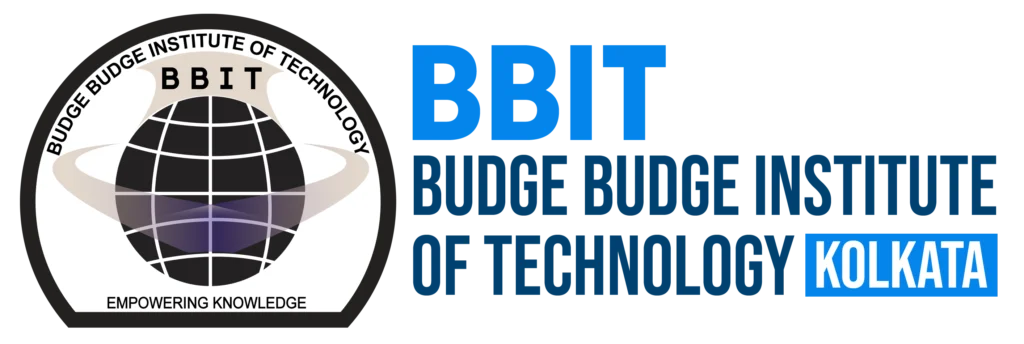B.Tech in Basic Science and Humanities Department (BSH)
DURATION: 3 YEARS
Become Leaders of Tomorrow!
The Department of Basic Sciences and Humanities at BBIT College, Kolkata, adopts a holistic approach to ensure the overall well-being of newly admitted students. Our enthusiastic and student-friendly faculty members serve as the primary point of contact for first-year B. Tech students, fostering a trustworthy and memorable bond that lasts a lifetime.
Our department offers foundational undergraduate courses in Mathematics, Physics, Chemistry, and Humanities (English) for all first-year engineering streams. Additionally, we provide support for department-specific interdisciplinary science and humanities subjects in higher semesters.
Equipped with modern Physics, Chemistry, Numerical, and Language Labs, our department plays a crucial role in nurturing scientific aptitude and enhancing communication skills in English. By following contemporary international approaches, the guidance and supervision from our department provide students with a solid foundation in science and humanities. This foundation not only enhances their technical understanding but also prepares them for higher-level job roles and career advancement.

Programme Outcomes:
Ability of the pupil to apply knowledge of mathematics, science, and communications to technical problems and social situations.
Presentation and discussion of latest technologies in various fields, utilizing the fundamentals of engineering.
Skill in handling equipment in laboratories and conducting meaningful experiments with conclusive results and data analysis.
Choosing the right techniques to design, create, and test a system with accuracy.
Ability to ascertain feasibility and reliability of components specific to industrial and social development.
Display of confidence in oral and written presentations through timely and meaningful interaction.
Inculcation of ethical behaviour and social values, essential to professional growth.
Excellence in academics, both theory and practice, with a steady and firm goal for higher studies.
Regular attendance of lectures and practical sessions irrespective of other commitments.
Recognition of the requirement and ability to engage in lifelong learning.
Development of healthy relations between parents, students, and the department.
Timely staff/PTA meets and counselling sessions/remedial teaching for pupils.
Programme Educational Objectives:
Enable meaningful understanding of applied sciences fundamental to various branches of engineering, thus laying the foundation of each pupil’s career.
Develop in the pupil a mathematical approach and a scientific attitude towards problem solving through engaging activities and practical sessions.
Impart training in communication skills, professional ethics, and management principles necessary for the pupil’s career.
Program Specific Objectives (PSOs):

Critically analyze complex power system scenarios and propose solutions using acquired theoretical and practical knowledge.

Work on defined projects by interpreting power system data to provide real-time solutions to system issues

Identify optimal solutions to enhance power transfer capability, improve power quality, and ensure reliability.
This program is ideal for individuals passionate about manufacturing and designing power systems, who possess strong problem-solving abilities and a desire to pursue rewarding careers in electrical system design, development, and maintenance, ensuring quality, safety, reliability, and sustainability.
Programme Specific Outcomes:
Train the students to be engineers in advanced communication systems.
Encourage the students to solve core engineering problems using the latest technological advancements.
Potential Job Roles
Software Engineering
Software engineers work on creating complex solutions for various applications across different sectors. Unlike programmers, who focus on coding, software engineers design the framework and architecture that programmers use to implement solutions.
Graphic Designing
Graphic designers work on visually appealing projects, which often include designing interfaces, advertisements, and promotional materials. Front-end web designing is a popular path within graphic design, offering flexibility and attractive salary packages.
Software Testing
Software testers, or Quality Analysts, are crucial for ensuring the quality of software applications. They evaluate software to find bugs and issues, using their knowledge of the entire software development life cycle to enhance product reliability and performance.
Information Security Professional
Information security professionals focus on protecting systems and data from cyber threats. This dynamic field requires staying updated with the latest industry trends and security measures to safeguard sensitive information.
Mobile Application Developer
With the proliferation of smartphones, mobile app development is a growing field. Mobile application developers create apps for various platforms, and entry-level positions offer competitive salaries with significant growth potential in this emerging area.
Program Overview & Structure
Theory:
- English language technical Communication
- Physics – 1
- Mathematics-1
- Basic Electrical Electronic Engineering – 1
- Engg. Mechanics
- Physics – 1
- Basic Electrical Electronic Engineering -1
- Workshop Practice
- Language Laboratory
- Extra Curricular Activities(NSS/NCC/NSO etc)
Theory:
- Basic Computation Principles of Computer Programming
- Chemistry-1
- Mathematics-2
- Basic Electrical Electronic Engineering-II
- Engineering Thermodynamics Fluid Mechanics
- Basic Computation Principles of Computer Programming
- Chemistry-1
- Basic Electrical Electronic Engineering- II
- Basic Engg. Drawing Computer Graphics
Theory:
- Values Ethics in Profession
- Physics-2
- Basic Environmental Engineering Elementary Biology
- Analog Digital Electronics
- Data Structure Algorithm
- Computer Organization
- Physics-2
- Analog Digital Electronics
- Data Structure Algorithm
- Computer Organization
Theory:
- Numerical Methods
- Mathematics-3
- Communication Engg. Coding Theory
- Formal Language Automata Theory
- Computer Architecture
- Technical Report Writing Language Lab Practice Numerical Methods Lab
- Communication Engg Coding Theory
- Software Tools
- Computer Architecture
Theory:
- Economics for Engineers
- Design Analysis of Algorithm
- Microprocessors Microcontrollers
- Discrete Mathematics
- Object Oriented Programming (IT)
- Design Analysis of Algorithm
- Microprocessors Microcontrollers
- Programming Practices using C++
- Object Oriented Programming (IT)
Theory:
- Principles of Management
- Data Base Management System
- Computer Networks
- Operating System
- Computer Graphics
- Multimedia Technology (IT)
Practical:
- Data Base Management System Lab
- Network Lab
- Operating System Lab
- Seminar
Theory:
- Software Engg.
- Compiler Design
- Artificial Intelligence
- Cloud Computing
- Internet Technology (IT)
Practical:
- Software Engg. Lab
- Group Discussion
- Industrial training
Theory:
- Cryptography Network Security
- E-Commerce (IT)
Practical:
- Project-2
- Project Management
- Design Lab / Industrial problem related practical training (Workshop needed)
- Grand Viva
Eligibility Criteria
B. Tech: Sr. Secondary (10+2) in PCM/PCMB with minimum 50% marks from recognized Board / University
Fees Structure
24 Months EMI
₹4,583*
Interest free
Per Semester Fee
₹27,500*
Full Program Fee
₹1,65,000
Meet our Top Rank Faculties

Arnab Chatterjee
Professor & Head-HU, Ph.D

Debabrata Hazra
Assistant Professor, Ph.D

Anusriya Mukherjee
Associate Professor, MBA

Abhinandan Bag
Assistant Professor, MA

DR ANINDITA NAHA
Assistant Professor, M.A and Ph.D
Upraise your Career Now with BBIT's M.Tech Program.

State-of-the-Art:

Vision
To build a foundation for the development of the Institute by igniting and nurturing enthusiasm, interest, and passion in the study of chemistry within professional courses as part of the curriculum

Mission
To guide young minds in discovering their talents through dedicated teaching, commitment, and innovative instructional methods; to foster a high level of competence in the study of Engineering Chemistry; to provide the groundwork for producing graduates committed to integrity, professionalism, and lifelong learning by broadening their knowledge in both range and depth; to support the developmental activities of the College by contributing to key areas such as faculty, laboratories, and the library; and to sustain efficient operating systems towards realizing our objectives as an institution of eminence and international standards.

